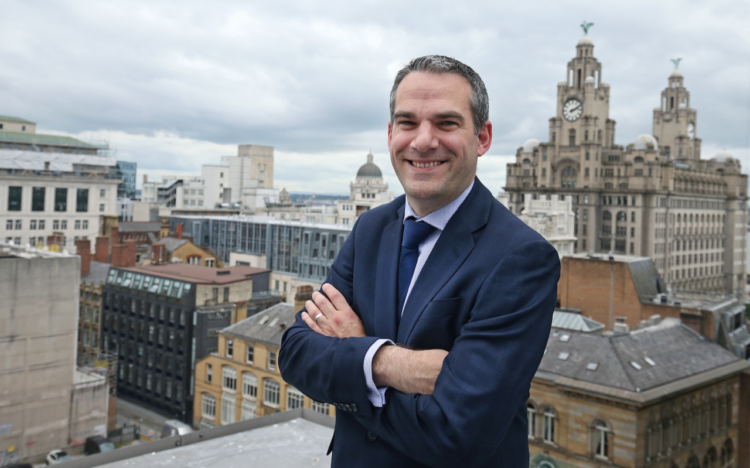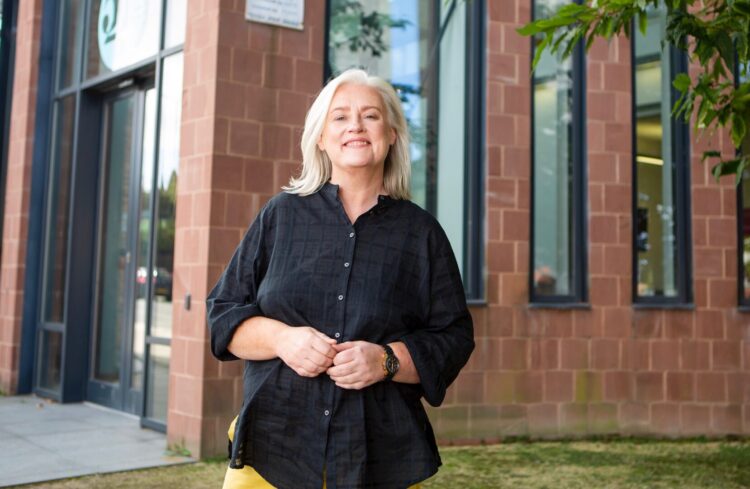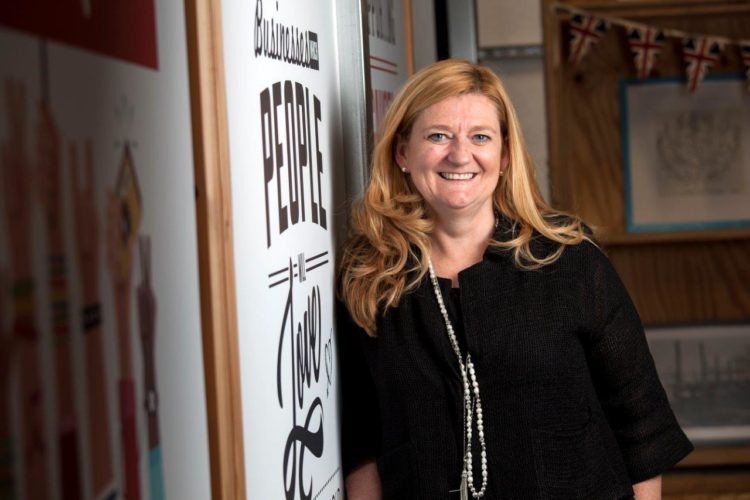Chef’s VAT plea to Chancellor falls on deaf ears
Leading Liverpool chef Paul Askew issued a plea to Chancellor Rishi Sunak to cancel returning VAT to 20% in April – but his call went unheeded. This and all the local business reaction. Tony McDonough reports

Chancellor Rishi Sunak has left the Liverpool city region hospitality sector disappointed by failing to heed a call not to raise VAT in April.
In LBN on Wednesday morning, top Liverpool chef Paul Askew urged the Chancellor Rishi Sunak to resist the temptation to put VAT back up to 20% in his spring statement. It had been cut to 12.5% during the pandemic to help the struggling hospitality sector.
Paul, who is Chef Patron of The Art School restaurant in Liverpool, said: “The chancellor has a unique opportunity to level up hospitality… putting hospitality VAT back up to 20% creates the very real issue that we all go backwards again.”
However, while the Chancellor did offer some help to small businesses in the spring statement, the VAT call went unheeded. Following the statement, Paul added: “This is a dark and worrying time for the hospitality industry.
“The chancellor has today spurned a unique opportunity to level up. Raising VAT back to 20% now is absolutely the wrong time for hospitality in the UK, from restaurants and bars to pubs and hotels, and I know businesses across the land will be deeply concerned about the implications of this.”
It was also met with dismay by Liverpool Chamber of Commerce chief executive Paul Cherpeau. He said: “Our tourist attractions and hospitality venues will be highly concerned to see the 12.5% VAT rate expire in April. This lower rate has been the catalyst for many to survive over the past two years and it would have provided further breathing space as they tackle a period of uncertainty.”
Mr Cherpeau welcomed the rise in the Employment Allowance, which gives relief to smaller businesses’ National Insurance payments. Following the spring statement, this will increase from £4,000 to £5,000 from April.
READ MORE: Sunak unveils £6bn personal tax cut
READ MORE: Spring statement at-a-glance guide
“As businesses in the Liverpool city region face up to a mounting burden of financial pressures, today’s statement will provide some welcome relief, but the Chancellor could have done more to reassure businesses,” he said.
“It’s certainly encouraging to see the Government focusing on encouraging private sector innovation through improved R&D incentives and greater investment in training to close the skills and productivity gap.
“Reforming the apprenticeship levy to make sure it’s effective and the increase in the employment allowance up to £5,000 should help SMEs to build for the future with greater optimism.
“The year-long 5p cut in fuel duty may offer some comfort to transport and logistics operators albeit for only a short time, but the level of impact across the business base is questionable, particularly if the base cost of fuel continues to rise. It won’t insulate businesses from the rising costs, but it should soften the blow a little.
“It is unclear whether the increase in the National Insurance threshold will benefit employers as well as employees. If the threshold for businesses’ contributions is also to be higher, those with high numbers of lower-paid or part-time staff will welcome the opportunity to limit their expenses.”

However, Liverpool City Region Metro Mayor Steve Rotheram accused the Chancellor of showing a “complete lack of empathy” for ordinary people. He said: “Millions of people across the country face a worrying year ahead as the cost of living crisis starts to bite.
“With energy prices rising, fuel prices rising, the cost of food and other essentials rising, and inflation at its highest point in 30 years, they were looking to him today to offer them a helping hand.
“Instead, he is piling on the pressure, offering no help to ordinary people and putting yet more pressure onto increasingly desperate families. Today’s lack of action will only push more people below the poverty line.
“When some Tory MPs start to worry that the Chancellor is not doing enough, you know things are very serious.”
The Chancellor’s decision to adopt the Federation of Small Businesses’ proposals to allow more businesses to claim relief on their National Insurance bills has been welcomed by the leading UK business organisation.
Maggie O’Carroll, chief executive of leading local social enterprise, The Women’s Organisation, says the Chancellor has “done little to address the worst cost of living crisis and inflationary pressure on businesses predicted since the 1980s”.
I am extremely disappointed,” she added. “I had really expected that the Chancellor would make some substantial changes to reflect the enormous challenges faced by people and businesses in the UK. Most obviously to me, the energy price cap needed to be maintained to have a more universal impact and protect working and vulnerable families from the jaw dropping 54% rise in their bills.
“The 5p cut in fuel duty makes a very small difference when fuel has risen by more than 40p per litre. Also most low pay or benefit recipients do not own a car. So they do not benefit from the fuel duty cut. And all of this while millions of people – predominantly women and mothers – are still reeling from the withdrawal of the Universal Credit uplift in autumn.
“This statement should have been shaped specifically to protect the most vulnerable, providing support where it is most needed first. But it simply doesn’t feel like that is the case.”

Michael Sandys, FSB Merseyside and Cheshire area leader, said: “We are very pleased to see the Chancellor adopting our top ask for this spring statement – uprating the Employment Allowance to help small employers with national insurance costs.
“We originally put forward the Employment Allowance as a targeted measure to help small firms, and it has now been expanded three times since its creation. Together with a cut to fuel duty, these measures will provide crucial breathing space for our embattled small employers.
“This spring statement marks a good starting point, with welcome measures on business rates, net zero and energy investment taking effect next month.
“With steep inflation, energy bills increasing fast, without the same support in place as enjoyed by consumers, and hiring pressures landing hard on small firms, more of the right stuff will be needed in the autumn given this challenging backdrop.”
Recruitment entrepreneur Lorna Davidson, founder of Liverpool-based Redwigwam, said Mr Sunak had listened to the concerns of businesses and workers and recognises the additional pressures caused by the Ukraine situation.
She added: “I welcome the announcements regarding the cut in the basic rate of income tax to 19p in the pound and the equalising of the thresholds for National Insurance and income tax.
“I was also pleased to hear about the cut in fuel duty by 5p a litre until March next year, although I’m worried this doesn’t go far enough. The vast majority of my staff and Rediwigwam’s workers are driving to work and around the country, so the current high costs of fuel are a big concern for them.
Workers are really feeling it where it hurts most and that’s in their pockets.”

The Chancellor has “set the scene for an overhaul of Britain’s corporate tax system to boost business investment”, according to Ed Dwan, partner and head of accountancy firm BDO in the North West.
“He has announced he will consult with businesses over the summer about potential changes which would be introduced at a Budget later this year,” he said. “Themes in focus were capital, skills and ideas with the hint of new incentives for investment as the existing super deduction relief is currently due to end in 2023.
“This may be extended or expanded in its use, which would be well received in the region. A third of companies surveyed in BDO’s most recent Rethinking the Economy research have already taken advantage of the super deduction incentive. Overall, he was clear that businesses will be encouraged to invest for growth.”believe the Government should prioritise tax cuts or government subsidies for regional businesses, for example.”
And, Neil Murray, chief executive of Liverpool-based Impact Data Metrics, also said: “I was pleased to see The Chancellor look to address the productivity gap by acknowledging that Britain lags behinds when it comes to workforce skills and development.
“If the Government is serious about rebalancing economic opportunity by levelling up, Sunak’s acknowledgement that“something is not working” with UK investment in productivity is a step in the right direction and we look forward to see what changes are made in the autumn budget.
“As a growing business in the knowledge economy it was pleasing to see an increase in the employment allowance for small businesses to £5,000 and also the changes to R&D tax incentives to include data and cloud computing, which should increase innovation in a dynamic and fast-paced sector.”

